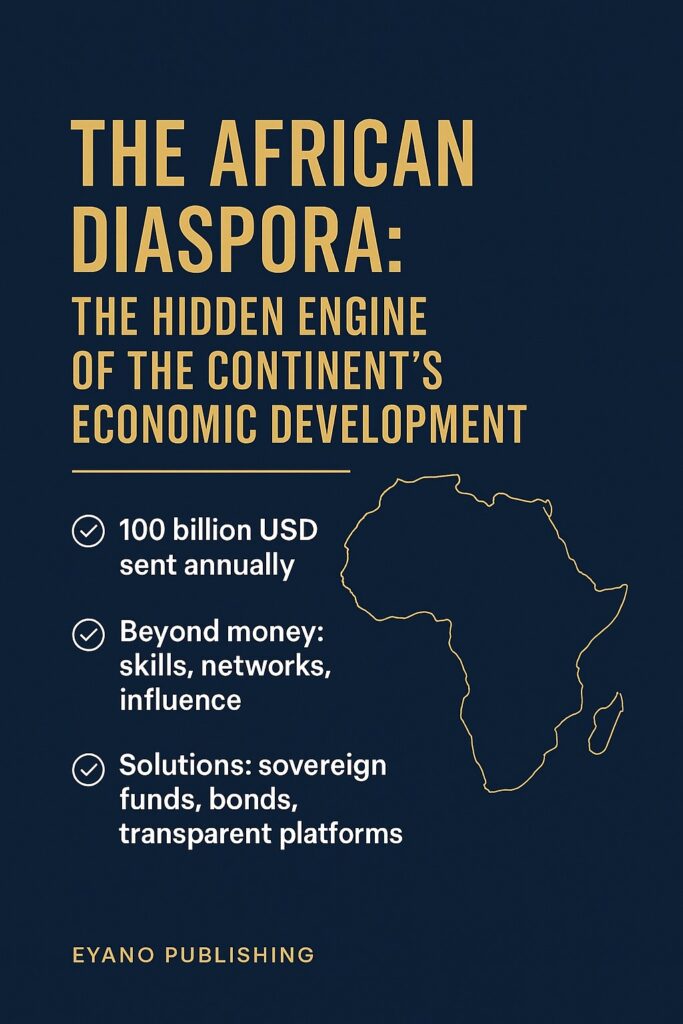Introduction: An Often-Underestimated Treasure
Every year, millions of Africans living in Europe, North America, the Middle East, or Asia send money back home to support their families. These remittances now surpass international aid and foreign direct investment in many African countries.
But to reduce the diaspora to a financial flow is a mistake. It is also a reservoir of skills, networks, and influence. Properly organized, the African diaspora could become the continent’s largest investor.
1. Remittances: An Invisible Pillar
According to the World Bank, the African diaspora sends more than 100 billion USD annually to the continent.
- In Nigeria, these transfers account for more than 4% of GDP.
- In the DRC, they exceed development aid.
- In some countries, they are the main source of foreign exchange.
This money funds:
- Education for children,
- Healthcare for families,
- Construction projects,
- Small businesses.
2. Beyond Money: An Invaluable Human Capital
The African diaspora also consists of millions of doctors, engineers, teachers, researchers, and entrepreneurs abroad.
- Skills: trained in top universities, mastering cutting-edge technologies.
- Networks: embedded in global capitals, opening doors to markets.
- Influence: shaping international political and economic debates.
3. Direct Investments from the Diaspora
Increasingly, diasporas are shifting from “family banks” to structured investors:
- Building SMEs in Africa.
- Real estate and infrastructure projects.
- Agricultural investments (modern plantations).
- Tech startups funded by diaspora entrepreneurs.
4. Digital platforms are emerging to channel these funds toward credible projects.
Diaspora as Economic Diplomacy
The diaspora is also a diplomatic force. It influences foreign policies in host countries to favor Africa.
Examples:
- Nigerian and Ethiopian diasporas lobbying in the United States.
- Congolese communities in Europe mobilizing around the conflicts in Eastern DRC.
- Diasporas promoting Africa’s image to attract investors and tourists.
5. Challenges to Overcome
Trust: fear of corruption discourages investments.
Structures: lack of official channels to direct funds.
Fragmentation: diasporas divided by country and community.
6. Toward a “Diaspora Bank”
To transform potential into power, solutions include:
- Creation of a diaspora sovereign fund.
- Issuance of diaspora bonds (already tested in Ethiopia and Kenya).
- Development of transparent platforms to direct savings into agricultural, industrial, and tech projects.
Conclusion: A Continent Carried by Its Global Children
The African diaspora is a lifeline for the continent. It already sustains millions of families. But tomorrow, it could finance industrialization, education, infrastructure, and green energy.
The 21st century will be shaped by an Africa built with the contributions of its children abroad.
✍️
Augustin Kazadi-Cilumbayi
President & CEO
Eyano Publishing
📧 contact@eyanoexpress.com
📞 US/Canada: +1 800 955 0153 | International: +1 613 882 0555
🌐 www.eyanoexpress.com
